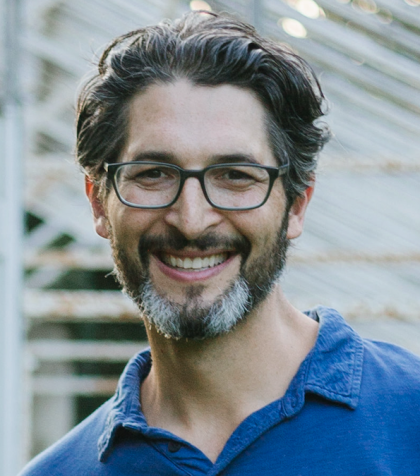After COP28, this year's U.N. climate summit, wrapped up last week, representatives from nearly 200 countries signed a pact to transition from fossil fuels and to stop emitting carbon dioxide into the atmosphere by 2050. The annual Conference of the Parties (COP) brings together diplomats to discuss climate change under the UN Framework Convention on Climate Change. Several experts associated with the Ralph O'Connor Sustainable Energy Institute (ROSEI) at Johns Hopkins University attended COP28, including Ben Zaitchik, professor of earth and planetary sciences at the Krieger School of Arts and Sciences; Nick Zhang, a doctoral candidate in the Whiting School of Engineering's Department of Materials Science and Engineering; and Dan Kammen, a professor of energy at the University of California, Berkeley, who is on ROSEI's advisory board.

Image caption: Benjamin Link
Image credit: Ralph O'Connor Sustainable Energy Institute
This year's agreement made international news when nations committed to phasing out the use of gas, oil, and coal and transitioning to wind, solar, and other renewable alternatives over the next 30 years.
In a conversation with the Hub, Benjamin Link, managing director of ROSEI, offered thoughts on the pact's promise and shortcomings, as well as changes we can hope to see before COP29 in November 2024.
What is the significance of having diplomats from nearly 200 countries approve a global pact to "transition away from fossil fuels?"
For nearly three decades, countries participating in COP meetings have refused to single out fossil fuel use for transportation, power generation, and materials production as a primary driver of human-caused climate change, even though the science behind the greenhouse effect has been clear for all this time. So, the fact that the final resolution document produced from COP28 included the call to "transition away from fossil fuels" is important and long overdue.
After the creation of the pact was announced, some criticized it publicly. What were those criticisms, and are they valid?
The critiques of this year's COP resolution are largely centered on scale of action, that we're taking baby steps as a collection of nations when what's really needed is to move by leaps and bounds. I think we need to agree on society-wide structural changes to how we build, what propels our vehicles, and how we generate electricity. Broadly, we have much of the technology to move us toward renewable energy and fuels. We require consistent political leadership and policy to drive the transition.
Another critique of the COP28 meeting is the continued underfunding of financial mechanisms for the Global South (various developing countries in the southern hemisphere) to progress their energy transitions. We all share a single atmosphere, so our progress toward global climate goals can be only as successful as the clean energy transitions of countries that lack the capital investments needed to build out the new energy economies. This investment in energy justice will yield an excellent return on investment for planet Earth.
What changes should we hope to see before COP29 to indicate a successful year for combating global climate change?
That's a great question, and it's so important that we hold ourselves accountable from one COP to the next. The COP meetings are a bit like the Olympics or the World Cup. The real work takes place in the days, weeks, and months in between the COP meetings, punctuated by the big splashy event with big headlines attached. Progress will be measured by our success in operationalizing the just-agreed-upon goal to triple renewable energy among participant countries by 2030. What does this look like for the U.S., India, China, and Nigeria? The target setting at COPs is relatively easy compared with the implementation work that follows. ROSEI is at the front line of implementation efforts, zooming down to analyze specific terawatts and MMBTus (British thermal units) of fossil gas across economic sectors to figure out how we get from here to there.
We have an enormous contribution to make at Hopkins because we bring to bear energy technologists, economists, emissions modelers, and policy experts whose collective efforts can map out energy transition pathways for any country in the world.
The deep challenge of climate change is one of collaboration and compromise. Success looks like unselfish teamwork rather than individual heroes. COP28 added new dots of progress to the global patchwork of decarbonization efforts. Hopkins and ROSEI will take these dots and connect away.
Posted in Politics+Society







